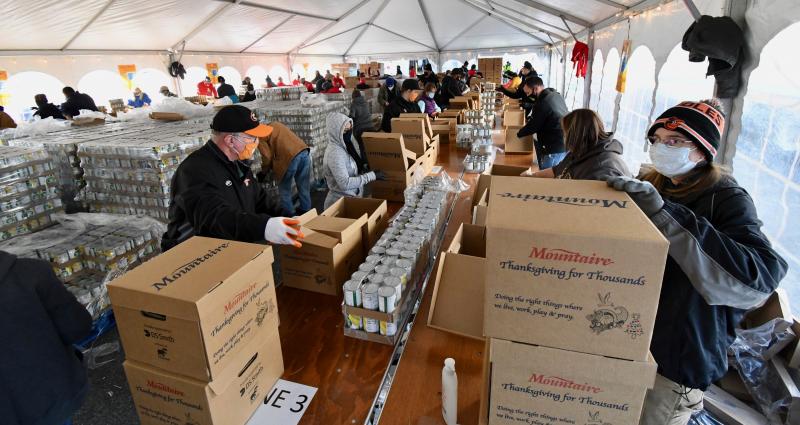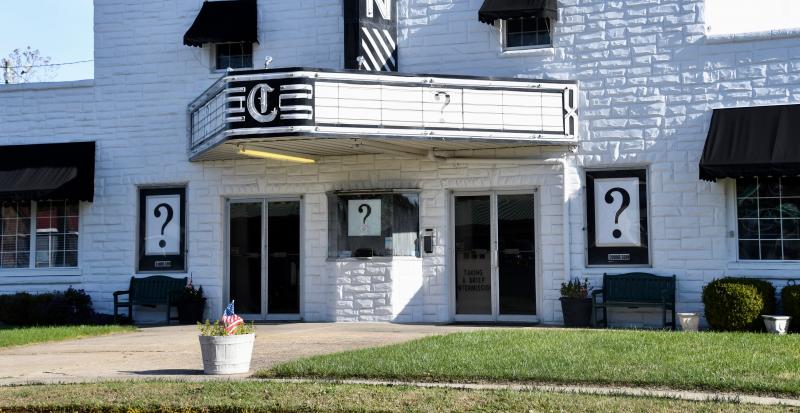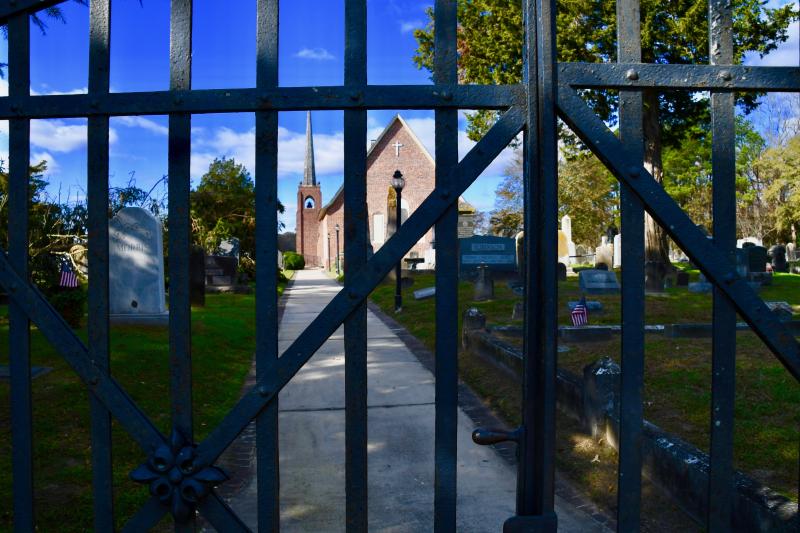Week 32: A return to more COVID-19 restrictions
As Delaware and the country experiences a surge of COVID-19 cases and deaths, during a Nov. 17 press conference, Gov. John Carney instituted additional restrictions to slow the spread of the virus.
All orders take affect at 8 a.m., Monday, Nov. 23. They include:
• Indoor family and friends gatherings limited to no more than 10 people.
• Indoor gatherings outside of homes must be limited to 30 percent of the venue's fire capacity with a cap up to 50 people. Events include weddings, church services, funerals, performances, political gatherings and events in public spaces, including fire halls.
• Outdoor public gatherings are limited to 50 people. Up to 250 people may be allowed with a plan approved by the Division of Health.
• Restaurants must restrict occupancy to no more than 30 percent of fire capacity indoors, with allowances for outdoor seating.
• Youth sports teams and venues are prohibited from hosting or participating in out-of-state tournaments, starting at 8 a.m., Tuesday, Dec. 1. Delaware teams cannot travel across state lines for tournaments.
The Division of Public Health continues to recommend that K-12 public schools operate in a hybrid model with a mix of in-person and remote instruction.
Minority leaders respond to restrictions
The following are excerpts from a letter to Gov. Carney from State Senate Minority Leader Gerald Hocker, R-Ocean View, and State House Minority Leader Danny Short, R-Seaford:
“Your administration has repeatedly said its approach to the virus is to flatten the curve of case growth to prevent a rapid spike of cases that could overwhelm the capacity of our medical system. Thus far, that goal has been successfully achieved, and it should remain a focus. Even during the peak of this crisis, Delaware's health care system has never approached its capacity. The state's COVID-19 hospitalizations peaked at 337 in late April –a small fraction of the more than 2,000 permanent acute care beds the American Hospital Association credits our state with having.
“Delaware presently has 126 COVID-19 hospitalizations. Only 4.3 percent of all the tests administered in the first week of this month have been positive. As you noted, the largest increase in COVID-19 cases has been among those between the ages of 18-to-34 – a demographic segment well-positioned to weather the virus without severe consequences. More than 98 percent of all Delaware COVID-19 fatalities have occurred outside this group.
“Additionally, both you and Division of Public Health Director Karyl Rattay noted that the biggest driver of COVID-19 spread in our state appears to be social gatherings, often in private homes, where participants are not observing proper protocols. We support the administration's efforts to convince citizens to wear face masks, practice safe social distancing, and take other appropriate precautions to deter the spread of the contagion. However, we caution you from taking any action that will further damage the prospects of Delaware's working families and small businesses.
“Phase I restrictions that you put into place earlier this year resulted in tens-of-thousands of Delawareans losing their jobs and causing untold numbers of small enterprises to close their doors –many of them for the last time. Our economy is only now beginning to recover. New restrictions leading to more lost jobs and foregone small business income will be devastating, not only to our economy but the fate of thousands of Delawareans. As our state's chief executive, you should be taking a comprehensive approach to protecting the public welfare – not only safeguarding public health, but citizens' livelihoods, the security of their homes and businesses, and the well-being of the entire community.”
More relief funds for businesses
Gov. John Carney has announced an expansion of the DE Relief Grants program for businesses hardest hit by COVID-19 restrictions. The expansion will provide up to $25 million in additional relief for hundreds of businesses that have been disproportionately impacted. Qualifying businesses, including restaurants and taprooms, will receive double their original grant allocation.
The program - funded by the federal Coronavirus Aid, Relief, and Economic Security (CARES) Act - is providing more than $150 million in direct assistance to Delaware small businesses statewide. The application deadline is Friday, Dec. 4, and can be found at delbiz.com/relief.
Sussex Academy goes to remote learning until Dec. 7
Sussex Academy in Georgetown has switched to remote learning for the rest of this week until Monday, Dec. 7. The school will complete the fall sports season as long as events are permitted and will be closed Nov. 23-27 for Thanksgiving break. After nine weeks of instruction, some students have tested positive for COVID-19, but all cases were traced to contact in the household; none have been connected to contact within Sussex Academy, said Head of School Eric Anderson.
Record number of new nursing home cases
A report released this week shows new COVID-19 cases in nursing homes in the U.S. have reached a record number this month surpassing previous peaks since the Centers for Medicare & Medicaid Services started tracking cases in nursing homes. The surge corresponds to increased cases in the communities where facilities are located.
In Delaware, of the 739 deaths related to COVID-19, 423 occurred in long-term care facilities. There have been 1,577 confirmed positive cases in those facilities.
According to Johns Hopkins University, weekly cases in the general U.S. population rose by 140 percent to 572,613,527 the week of Nov. 1. A correlating uptick in new cases in nursing homes occurred when cases in the surrounding community started rising back in mid-September.
During the first week of November, 47 percent of new COVID cases in nursing homes were from Midwest states with major spikes in community spread in the upper parts of the region. As a result, the Midwest region saw a 200 percent increase in weekly COVID cases in nursing homes since mid-September.
“We are especially concerned that this situation will only get worse with Thanksgiving just around the corner,” said Mark Parkinson, president and CEO of American Health Care Association and National Center for Assisted Living. “The public must realize that their actions not only endanger our nation’s most vulnerable, but also trigger government lockdowns of facilities, keeping these residents from their loved ones. This is detrimental to their health, wellbeing and happiness. We urge everyone to do their part to slow the spread immediately and exercise caution when celebrating Thanksgiving.”
Parkinson said most of the $175 billion Provider Relief Fund provided by the CARES Act in April has already been distributed and health care providers, including long term care facilities, will need additional funds to continue the response to the pandemic heading into the cold and flu season. The financial aid is crucial in helping long term care facilities acquire personal protective equipment, conduct regular testing, and hire additional staff or reward current caregivers for their heroic efforts,” he said.

























































